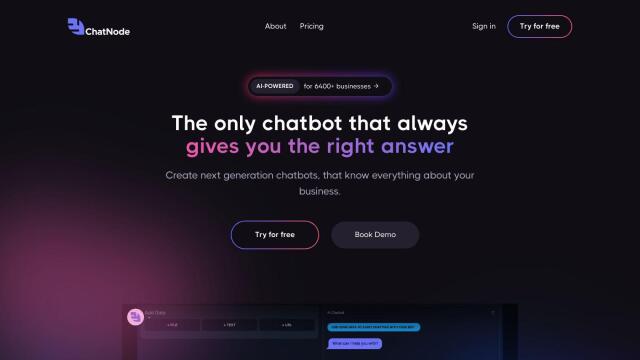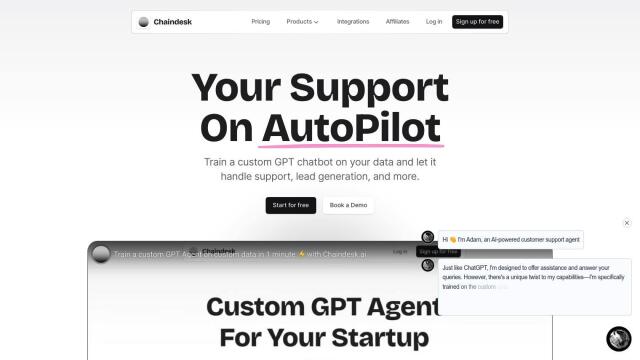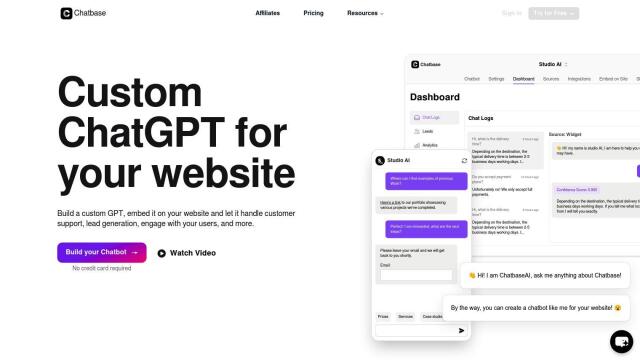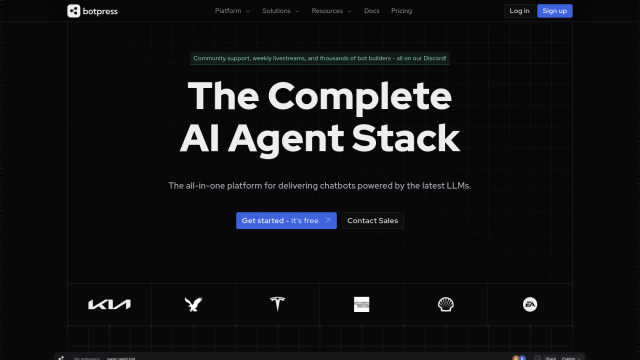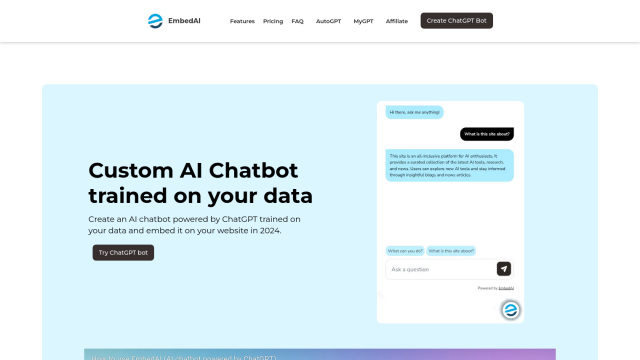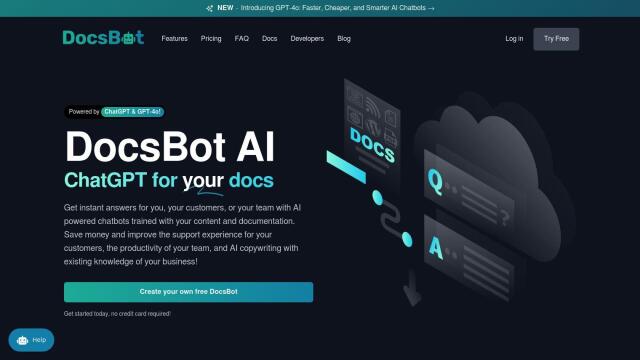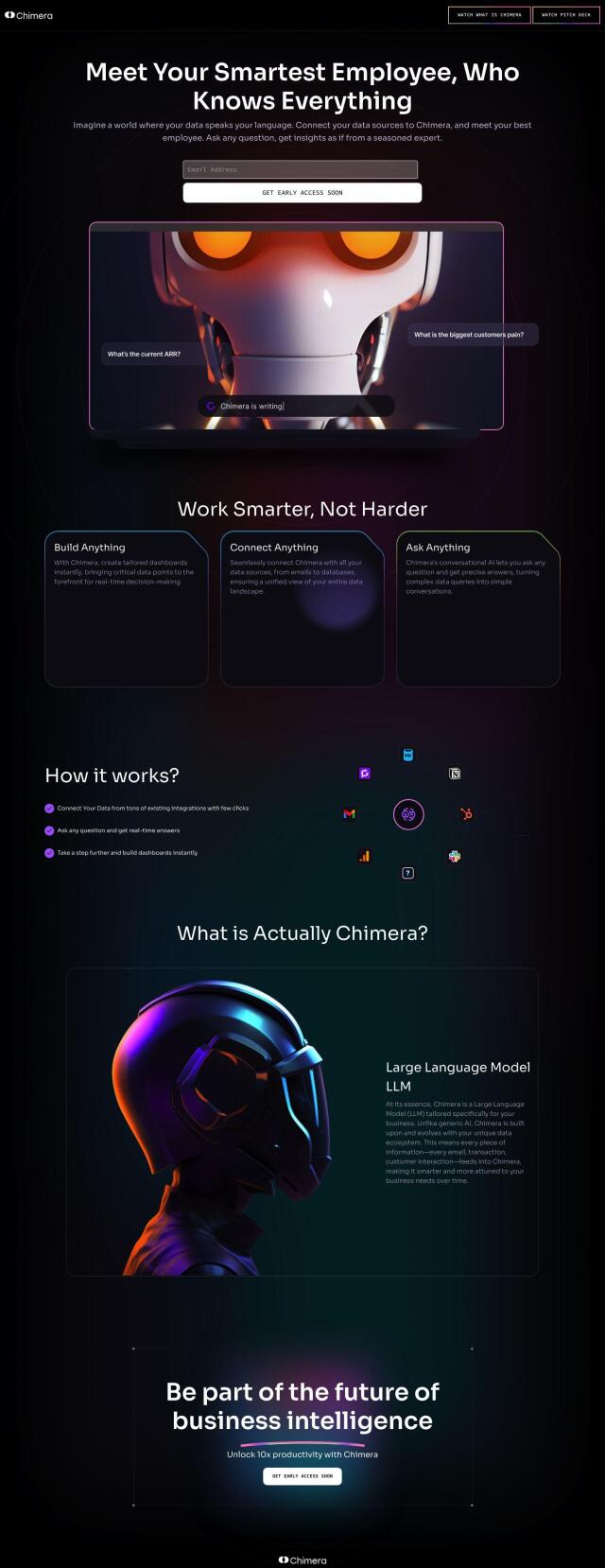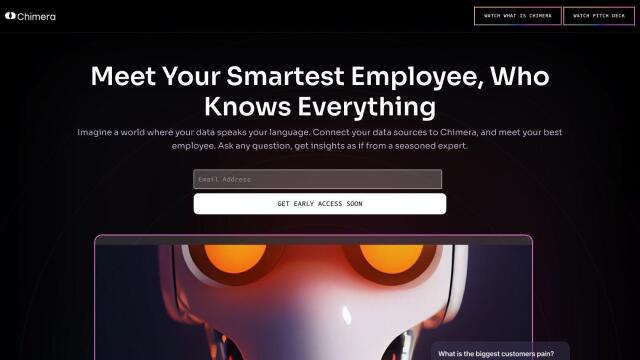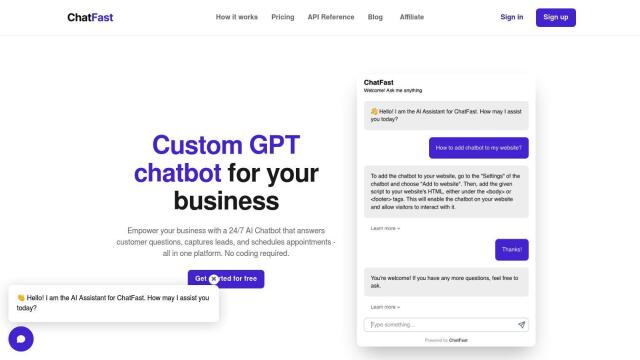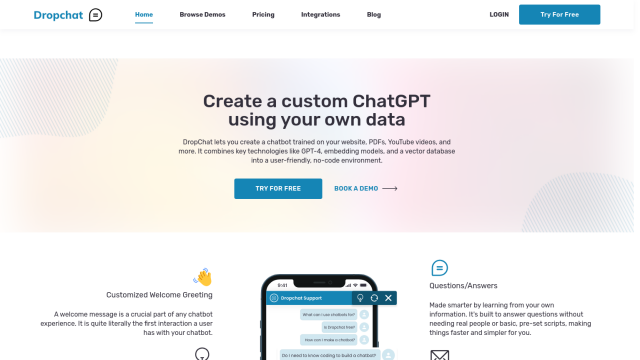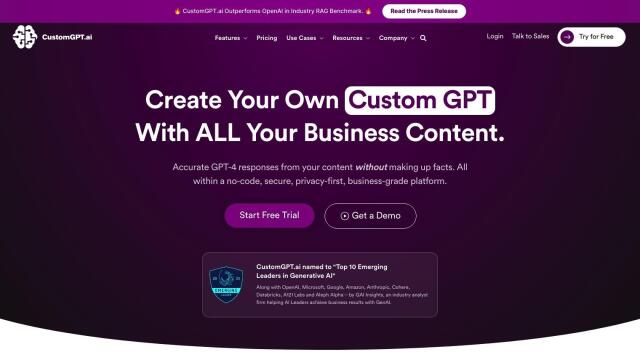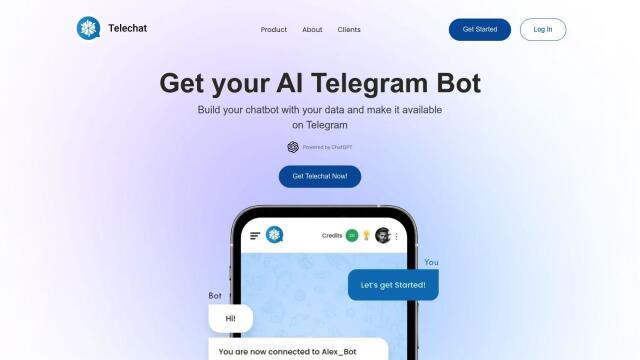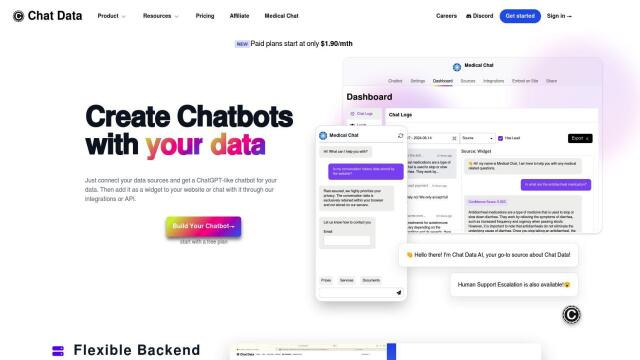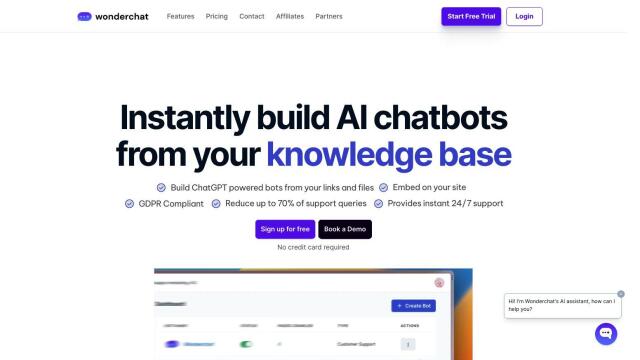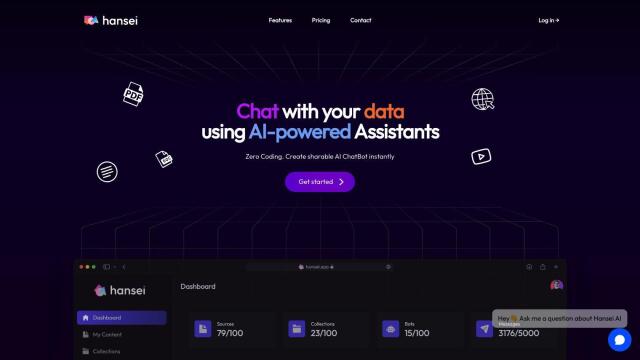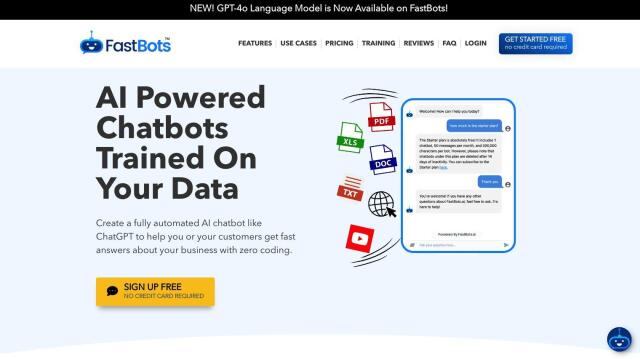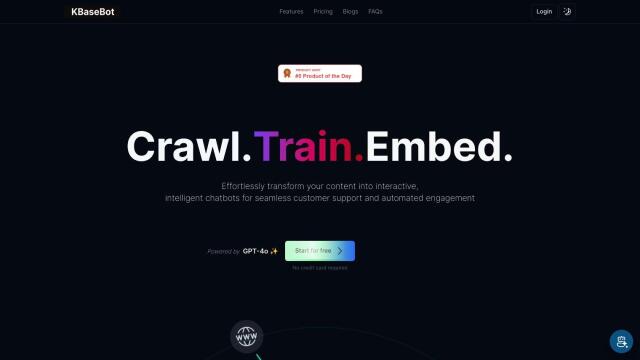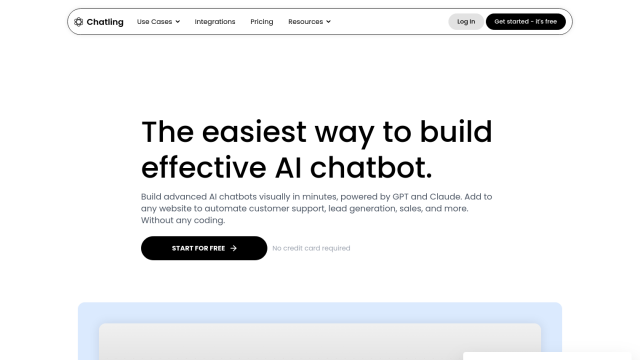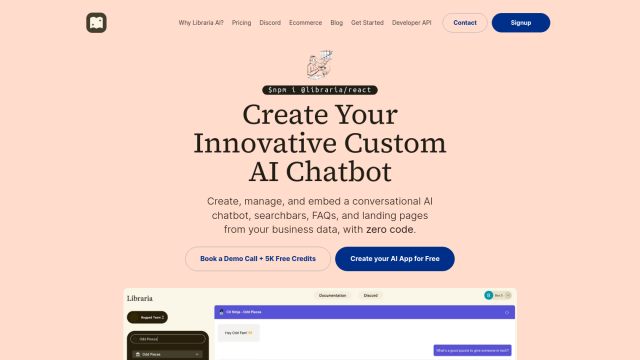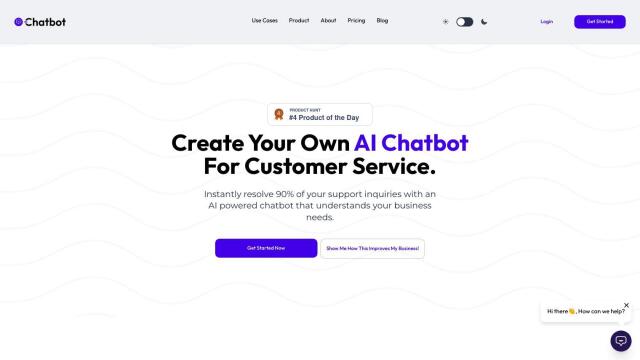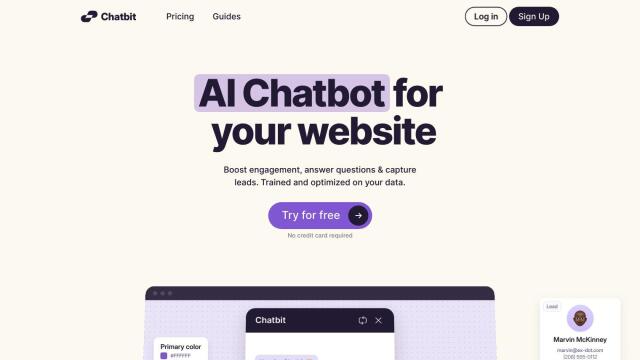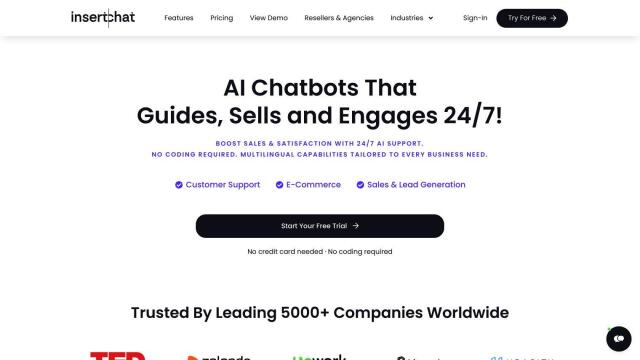Question: I need a solution that allows me to incorporate external data sets into my chatbot to make it more informative and accurate.

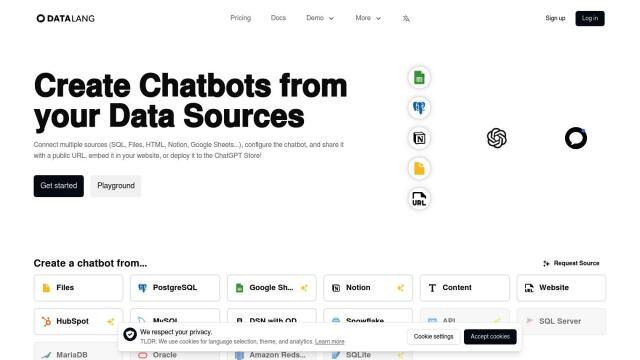
DataLang
Another powerful option is DataLang, which links your chatbot to a wide range of data sources, including SQL databases, files, Google Sheets, Notion and websites. You can create data views to expose specific data, then train GPT models on that data. DataLang has several pricing tiers, and you can even self-host the service, so it's good for businesses large or small that want to bring outside data into their chatbots for better data and conversational interfaces.

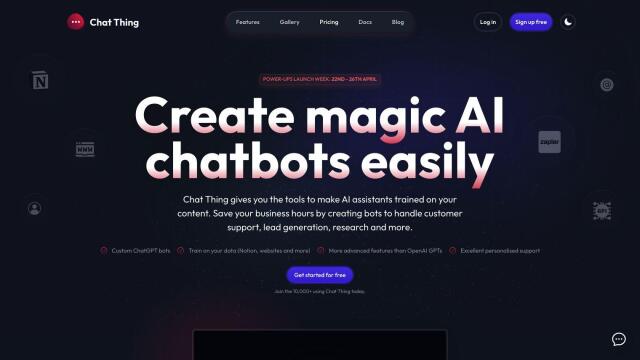
Chat Thing
If you need a tool that can handle your own data integration, Chat Thing is a good option. The service lets you create AI chatbots that can reach into any data source, so they can be very personalized and contextual. That can be particularly useful for businesses with proprietary data that's not easily available elsewhere, for example to improve customer service and response.

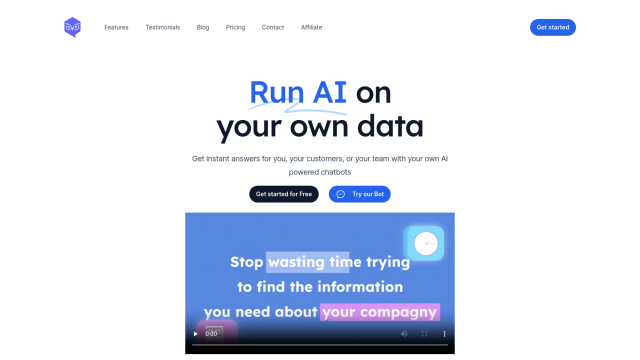
Owlbot
Last, Owlbot offers a relatively simple service for creating AI chatbots that can draw data from other sources and respond accordingly. It supports 95 languages and has analytics tools, so it's good for businesses of all sizes that want to automate customer interactions and get better data insights.

